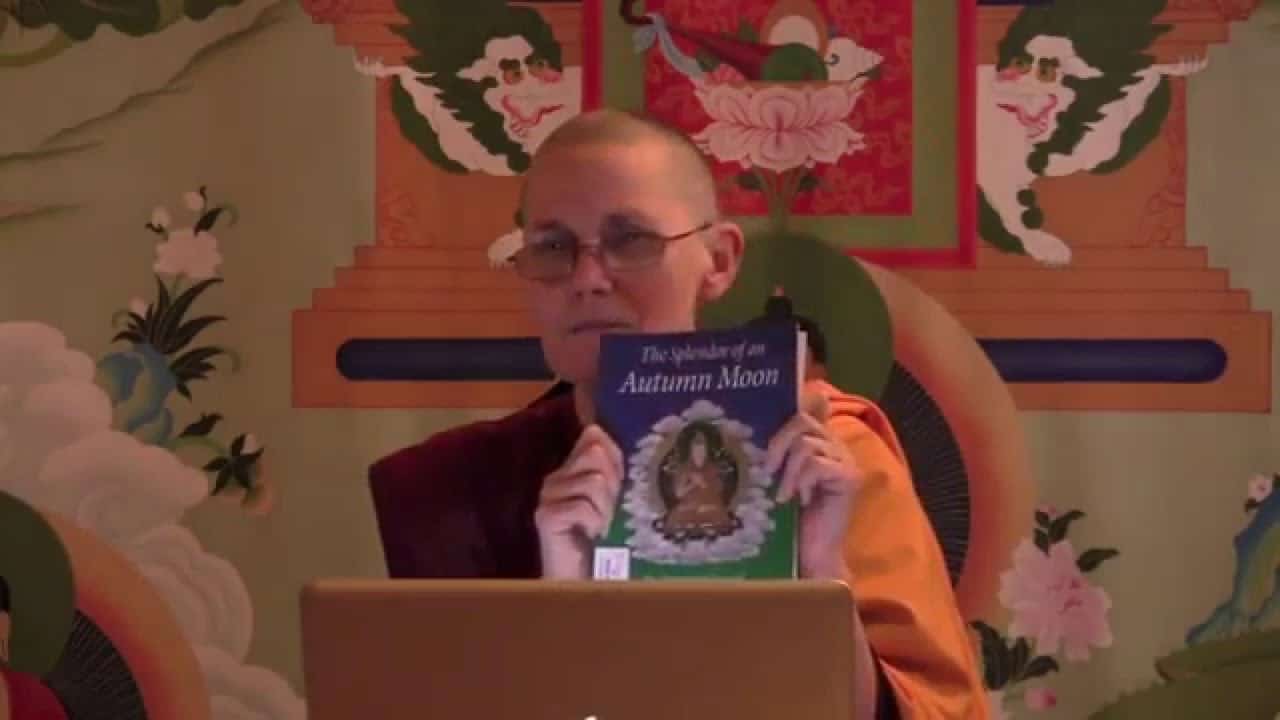Practicing when having surgery

Recently I had surgery and I’d like to share a little bit about my experience.
In our society it is very rare for us to witness death. Because we don’t witness it, we aren’t familiar with it, and we don’t think about it very much. The Buddha instructed us to contemplate impermanence and death because it makes us think about what is and is not important in our lives. I try to think about death a lot; many beings are dying around us all the time. If we pay attention we can see insects and animals die, but that is still removed from our own death. Taking the opportunity to become familiar with death in whatever way we can is important, especially because our mortality helps us to make wise decisions and to value each moment of our lives. In the lamrim there are two meditations on death that are very helpful—the nine-point death meditation and the meditation imagining our own death—but in my life it has been very helpful to think about death in experiences that I am going through.
I did that as I was preparing for this procedure. Venerable Chodron had talked about the five forces presented in the thought training texts a couple of weeks prior, so they were in my mind and I used them as my guide. A few days before the procedure I looked at my advance directive to make sure that it still spelt out what I wanted to happen in the event that something went wrong. The advance directive still accorded with my wishes and I felt very comfortable with it, especially if I ended up in a vegetative state. I also reviewed my will, which helped me to remember the importance of generosity and of giving away what I have to create virtue.
The morning of the procedure I practiced in the meditation hall with the rest of the Abbey community. I did the 35 Buddhas practice and tried to purify any remaining regrets I had. Fortunately, I have not been harboring any regrets in my mind. I reviewed my precepts and made prayers to have a precious human life, to not be separated from qualified Dharma teachers, and tried as much as possible to keep bodhicitta in my mind all the time. Although I can’t do that yet, I did my best.
Venerable Chonyi went with me to the hospital and on the way we talked about the practices that I wanted to be carried out if I died during the procedure. Her Dharma support helped me greatly. Even with all this preparation, I knew that having two catheters in my heart was not going to be a pleasant situation, especially since I had never experienced that before. I was anxious when we arrived at the hospital, and recognizing the anxiety in my mind, I made a very strong determination to view every person whom I came into contact with at the hospital as kind and compassionate. Also from my side, I resolved to try to generate kindness, compassion, and love for every person whom I met there, both staff and other patients.
I went through the admission procedure and the pre-surgical procedure. By the time I finally went into the surgical room, I was very calm. My mind was so settled and clear. This was quite startling to me. What was most interesting was how connected I felt to everybody. I hadn’t really experienced that before. There were four other people in the surgical room—the physician, two technicians, and the anesthesiologist—and I felt like I had known these people forever, which was very interesting. I felt that everyone in the entire building was wonderful and it was a very supportive place.
Of course, the reason for this was where I was directing my mind. I wasn’t directing it at the fear that I was experiencing. Beforehand, I’d worked a little bit with fear and found a definition that I found very helpful: fear is physical and emotional uneasiness that is felt about something known or unknown, which we believe we have no ability to control, handle or bring to the result that we wish for. Similar to anger, fear inflates the negative qualities of situations and is extremely self-focused. It’s all about me. Because I couldn’t control the outcome of this procedure, I was focusing on all the things that could go wrong, and since I had worked in hospitals for years, I knew a lot about what could go wrong. My mind created one horror story after another, which was not helpful. Just by turning the mind to focus on love and compassion, experiencing it by thinking that all the people around me had been my kind parents in previous lives, my mind was transformed. From my side I kept my focus on my heart, generating love and compassion for each person.
Not everything went smoothly during the procedure—the hospital staff had trouble getting the IV into my vein. In the past I would have been critical of them, but this time, none of such judgments arose. The effect of keeping my mind on the Buddha’s teachings was clear.
This experience taught me about the power of love and compassion. After it was over, I realized how powerful it is to consciously generate positive emotions. It made me wonder: what would it be like to have spontaneous bodhicitta? This reminded me of a passage in His Holiness the Dalai Lama’s book, Practicing Wisdom:
I cannot claim to have realized the awakening mind of bodhicitta. However I have a deep admiration for it and feel that the admiration I have for bodhicitta is my wealth and a source of my courage. This is also basis of my happiness. It is what enables me to make others happy and is the factor that makes me feel satisfied and content. I am thoroughly dedicated and committed to this altruistic idea whether sick or well. Growing old or even at the point of death, I shall remain committed to this ideal. I am convinced that I will always maintain my deep admiration for generating the altruistic mind of bodhicitta. On your part too my friends, I would like to appeal to you to try to become as familiar as possible with bodhicitta. Strive if you can to generate such an altruistic and compassionate state of mind.
May we take his instructions to heart and practice them as much as we can. Doing so is quite powerful.
Venerable Thubten Jigme
Venerable Jigme met Venerable Chodron in 1998 at Cloud Mountain Retreat Center. She took refuge in 1999 and attended Dharma Friendship Foundation in Seattle. She moved to the Abbey in 2008 and took sramanerika and sikasamana vows with Venerable Chodron as her preceptor in March 2009. She received bhikshuni ordination at Fo Guang Shan in Taiwan in 2011. Before moving to Sravasti Abbey, Venerable Jigme (then Dianne Pratt) worked as a Psychiatric Nurse Practitioner in private practice in Seattle. In her career as a nurse, she worked in hospitals, clinics and educational settings. At the Abbey, Ven. Jigme is the Guest Master, manages the prison outreach program and oversees the video program.


